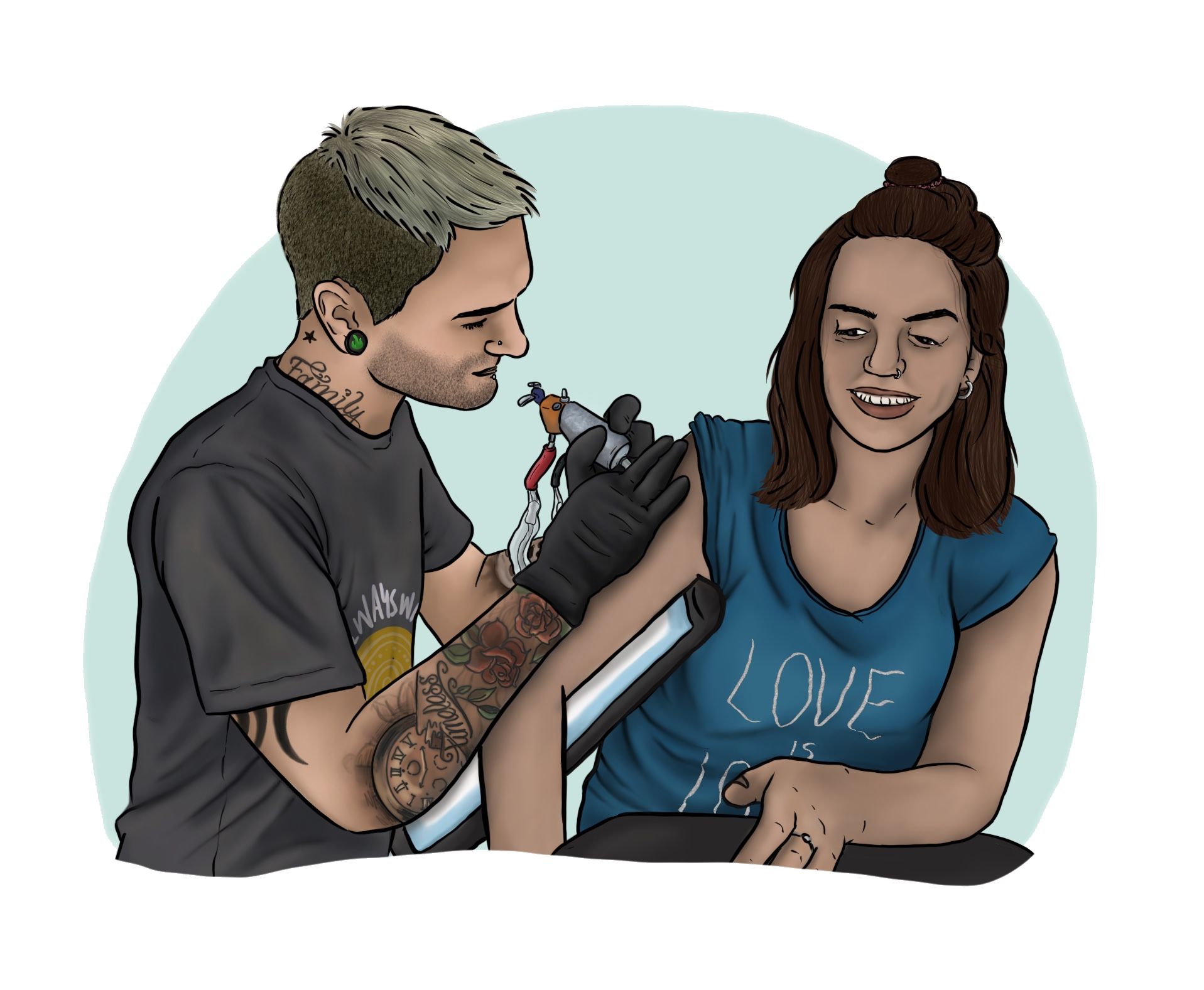Lots of people get body art, like piercings and tattoos. But before you decide to get anything done, there are many things to consider. One of the most important things is that with any kind of tattoo or piercing, there is always a risk of infection from a blood-borne virus (BBV). Choosing to have a tattoo or body piercing is a decision that lasts a lifetime – while tattoos may be removed if you change your mind later, your skin will never be the same and removal is very expensive. And while piercings can be removed, they can also leave a scar. Ask yourself these important questions before you make your decision.
Body piercings
Body piercings are holes in different parts of the body (for example, ear lobes, nose, eyebrow) made so jewellery can be worn. The holes are made with a piercing needle or stud gun.
Important: stud guns are designed for one body part only. Stud guns that are designed for ear lobes should only be used for the ear lobes. Guns that are designed to be used on the nose must only be used to pierce noses, etc. Do not allow anyone to use a stud gun to pierce a part of your body for which it is not designed. It is against the law in Western Australia to:
- carry out intimate body piercing (nipples, genitals, anal area, perineum) on a person under 18 years of age, even with parental or legal guardian consent
- carry out non-intimate body piercing (such as belly button but apart from ears) on a person under 18 years of age without written parental or legal guardian consent
- carry out piercing on the ears of a person under 16 years of age without parental or legal guardian consent.
An operator can go to jail or be fined for illegally piercing a minor.
A note on ear piercings
If you're getting your ears pierced with a stud gun rather than a piercing needle, ask the operator to confirm it is a stud gun designed for ear lobes, and that they are using a sterile, single-use, cartridge model.
Tattoos
Tattoos are permanent ink designs on the skin. They are made with coloured inks which are injected under the skin with a tattooing needle.
It is against the law in Western Australia to:
- tattoo or brand any part of the body of a person under 16 years of age
- tattoo or brand any part of the body of a person aged over 16 years of age (but under 18 years of age) without the written consent of their parent/guardian for a specific tattoo or brand on a specific part of the person's body.
An operator can go to jail or be fined for illegally branding or tattooing a minor.
What is in tattoo ink?
Studies have found that some tattoo ink may contain toxic chemicals, heavy metals, bacteria and fungi. These ingredients can cause allergic reactions in some people, and some chemicals might have long-term health effects. Bacteria and fungi can cause serious infections.
You should tell the tattoo artist if you are allergic to anything before getting a tattoo. If you are unsure ask if the studio will do a patch test with the dyes before you have the full procedure.
Cosmetic tattooing (permanent make-up)
Cosmetic tattooing is commonly performed in beauty salons for eye and lip lining and may be advertised as permanent make-up. If you are thinking of having one of these procedures, consider the following:
- Cosmetic styles change and although the work will fade over time, it is a permanent procedure.
- Make sure the body artist has permission of the local government authority to operate from their premises. This means the premises meet minimum health and safety standards. You can check whether a studio is registered by contacting the local government's Environmental Health Officer.
- Ask to see the body artist's training certificates and photographic examples of their work – if they can't show them to you, find another body artist
- Ensure that a new sterile needle is attached to the tattooing machine in your presence – DO NOT agree to a procedure if the needle is already in place
- Ensure that the body artist meets with the requirements set down in the health and safety sections above. You can check whether a studio is registered by contacting the local government's Environmental Health Officer.

 Fun
Fun